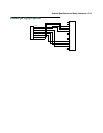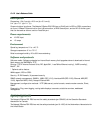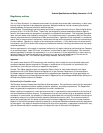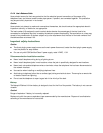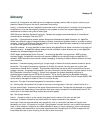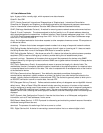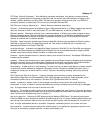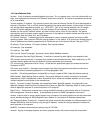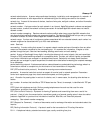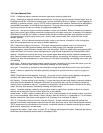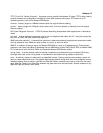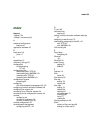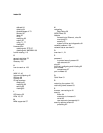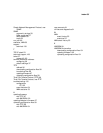128 User’s Reference Guide
internet: A set of networks connected together by routers. This is a general term, not to be confused with the
large, multi-organizational collection of IP networks known as the Internet. An internet is sometimes also known
as an internetwork.
internet address, IP address: Any computing device that uses the Internet Protocol (IP) must be assigned an
internet or IP address. This is a 32-bit number assigned by the system administrator, usually written in the form
of 4 decimal fields separated by periods, e.g., 192.9.200.1. Part of the internet address is the IP network
number (IP network address), and part is the host address (IP host address). All machines on a given IP
network use the same IP network number, and each machine has a unique IP host address. The system
administrator sets the subnet mask to specify how much of the address is network number and how much is
host address. See also Class A, B, and C networks.
IP (Internet Protocol): A networking protocol developed for use on computer systems that use the UNIX
operating system. Often used with Ethernet cabling systems. In this manual, IP is used as an umbrella term to
cover all packets and networking operations that include the use of the Internet Protocol. See also TCP/IP.
IP address, IP host address, IP network address: See internet address.
IP broadcast: See broadcast.
IP tunneling: See AURP.
IPX (Internet Packet Exchange): A protocol used by Novell NetWare networks.
ISDN (Integrated Services Digital Network): A method of transmitting data digitally over telephone lines.
ISP (Internet service provider): A company that provides Internet-related services. Most importantly, an ISP
provides Internet access services and products to other companies and consumers.
ITU (International Telecommunication Union): United Nations specialized agency for telecommunications.
Successor to CCITT.
LAN (local area network): A privately owned network that offers high-speed communications channels to
connect information processing equipment in a limited geographic area.
LocalTalk: The cabling specification for AppleTalk running at a speed of 230.4 kbps (kilobits per second).
MAC Address: Media Access Control address. The physical address of a device connected to a network,
expressed as a 48-bit hexadecimal number. Sometimes this is called the hardware address, and is a unique
number assigned to each device by the manufacturer.
MacIP: A protocol in which IP packets are encapsulated within AppleTalk headers, for transmission over
AppleTalk networks. MacIP requires the presence of at least one AppleTalk–IP gateway. MacIP is usually used to
allow an AppleTalk computer to communicate with an IP computer.
MacIP client: A Macintosh computer that is using the MacIP protocol to communicate with an IP computer.
MIB (management information base): A standardized structure for SNMP management information.
modem: A device used to convert digital signals from a computer into analog signals that can be transmitted
across standard analog (not ISDN) telephone lines. Modem is a contraction of modulator-demodulator.
NAT (Network Address Translation): A feature that allows communication between the LAN connected to the
Netopia ISDN Router and the Internet using a single IP address, instead of having a separate IP address for
each computer on the network.
NetBIOS: A network communications protocol used on PC LANs.
network: A group of computer systems and other computer devices that communicate with one another.




